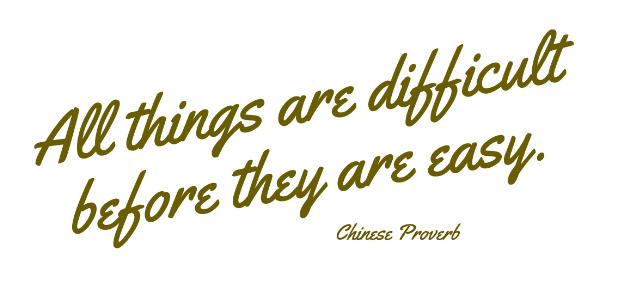Back to Arbans and Others
-
After an absence of 50 years I started again 8 years ago at the age of 70.
When practicing music I omit pieces that have more than 3 flats or sharps. The return on investment is just not there. Clark's books are loaded with 3 flats/sharps+. Especially at my age and really mostly a waste of time for younger players to concentrate in this area.
Better to learn to play FASTER with good articulation.
Thoughts?
-
@adc It's been quite a while since we've heard from you. Welcome back!
Playing in all keys becomes less of a challenge with repetition. Perhaps you could reserve 5 minutes of your practice time for addressing something that seems daunting, and use the rest of your time for what you're comfortable with. Eventually you'll absorb what once was difficult, and you'll move on to the next challenge. At the risk of sounding corny, I'd say don't bite off more than you can chew, but keep nibbling at something new.
-

-
I think that playing in all keys is important to our playing. Not only the fingers and brain get a workout, but negotiating the changes in back pressure through the valve combinations stabilise our embouchures. Practice scales slowly and precisely, slurred, and then add just enough tongue to separate the notes, then less legato and finally staccato. Play loudly and softly.
-
Play it all.
-
After playing a bunch of scales, I usually begin a practice session with exercises that are difficult for me and work on them. That isn’t much fun, but it’s a good way to improve your playing skills over time. Then I work on a tough solo piece or two that I can’t play…lol, and then play a few melodic pieces for a more enjoyable finish to the practice.
-
Arbans is key. I played many many years in many many keys in Arbans. It resulted in amazing finger memory, such that in songs that move like the wind, I just acknowledge the key, then put my Arbans finger memory in gear. No thinking, just Arbans under my fingers: (By the way, the bassest in this clip is ONLY 11 years old) - The song = Cherokee.
https://www.facebook.com/audrey.whitakerwright/videos/1803729576777517
-
I think we can easily be presented with so many areas to work on that we quickly become overwhelmed with the huge amount of work we then face, and we never seem to have time to reach any of our goals.
I would suggest deciding on where you want to go, then looking honestly at where you are now and then you will know the gap that you must cross, select just those offerings that will take you across that gap.
A great start is the ROWUK post, but our needs vary over time and it is always a good idea to often review and judge if what you are doing is still fit for purpose and will still yield the results you look for.
I know it is hard but the only true failures are those who give up before realising their goals.
-
Here is a comment from 'across the pond!'
Now in my mid 70's and with a friend who is in his 80's who came back to playing in his 70's and now plays in 3 community orchestras. I am a retired pro but now just help out locally whilst learning the flute (yes, the 'dark side!).I can, without any hesitation, (and my friend agrees) that the KEY to all your future enjoyment of playing is to nail that Arban, Why? well, as I always hammered it into my young pupils - you will find in practically every piece of music, a passage that is a group of notes you will have learned in the Arban. This could be a run of notes that is part of a scale, dominant 7th, chromatic scale etc. The Arban study patterns that are imprinted on your brain will transfer them to your fingers automatically.
You only have to learn a scale once to use that skill for the rest of your playing life. I am using the same philosophy in learning the flute - it's a chore, boring, frustrating etc but it has enabled me to join and enjoy music with two flute choirs after only 6 months, so well-worth the effort.
-
Hi! If younger people work in all keys, that will benefit them if later in life if they develop an interest in jazz improvisation - improvising creatively involves changing keys quickly and effectively
-
@adc Can I suggest that you might like to stretch yourself a little by adding degrees of difficulty one at a time - say a new scale with an extra sharp or flat, not looking at a chart? (FWIW, playing scales around the cycle of fourths can be fun - adding a flat/subtracting a sharp). After a short time you'll find that you don't have to think about the number of sharps and flats, just the starting note.
-
@tjcombo right on! The cycle/circle is great for so many standard changes like the Blues, which so foundational to more complicated changes! I use it lots!
-
Arban's has lots of good stuff in it. I believe that Tom Hooten did a revision of Arban's. It would be worth looking into purchasing that edition.